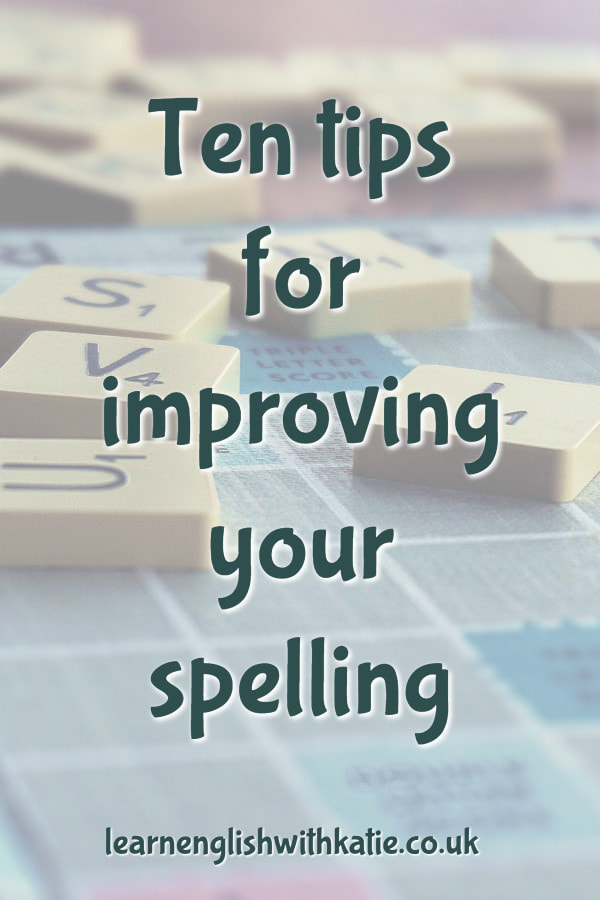|
Do you ever write in English? Does the spelling drive you crazy? In some languages, the spelling is regular and pronunciation is predictable but this is not always true in English! The ideas below might help you with this. 1. Not always crazy Many students think English is completely crazy but actually most words are spelled how you would expect from the sound or pronounced how you would expect from the spelling. 2. Learn the difficult words What about the words that are not pronounced or not spelled the way you would expect? Unfortunately, there is no easy answer. You just have to learn them! One way to do this is to write them out a few times. It may seem childish but it works. Another possibility is to find a mnemonic or make up your own. For example, "Bake Eight Cakes And Use Six Eggs" is a mnemonic to remember how to spell "because". Take the first letter of each word to spell it out. 3. Read I think I'm probably quite good at spelling because I have always read a lot. When you read, you learn the correct way to spell without even thinking about it. (Not all native speakers can spell!) 4. Read and listen Maybe you understand a word when you see it written down but you don't know how to say it or you don't recognise it when you hear it. Or maybe you have the opposite problem - you can say the word or understand when you hear it but you don't recognise it when you see it written down because the spelling is not what you'd expect. The answer to these problems is to listen to something and read along at the same time. Some graded readers have an audio version online. There are apps with text and audio, like Beelinguapp. You can watch a film, TV show or YouTube video with English subtitles. Another idea is to listen to a song and read the lyrics. 5. Learn the sounds Remember that English has 26 letters but 44 different sounds and that makes spelling complicated. You might like to download the British Council LearnEnglish Sounds Right app. This will teach you the sounds we have in English and give you example words which show how these sounds are spelled. 6. Useful website Visit the How to Spell website and click on lessons, exercises or spelling tests in the menu. There are lots of useful resources on this website. 7. Learn rules There are a few rules and common patterns that you can learn. For example, we often double the final consonant when we add -ed or -ing. "Stop" changes to "stopped" and "stopping". However, we remove a final -e when we add -ing so "dance" becomes "dancing". 8. Dictation This means you listen and write down what you hear. Find a video with English subtitles, something from BBC Learning English on YouTube, for example. Listen to one sentence at a time without reading the subtitles and try to write down what you hear. Then check if you are right! If you have a book with audio, this might be another way to do the same thing. 9. British and American English Remember that there are a few differences between British and American spelling. If you live in an English-speaking country, you should try to use the spelling system of that country. If you are writing for an international exam, such as Cambridge First or IELTS, it doesn't matter which one you use but you should try to be consistent and use the same one throughout. 10. Play word games Play Scrabble or Words with Friends online. There are many apps for word games that you can play alone. I like Word Brain and Wordscapes. You can also do crosswords and word searches. For more top tips, get my newsletters sent straight to your inbox by clicking the button below:
2 Comments
17/8/2020 03:49:32 pm
Katie this is super helpful! Reading any and everything is very useful. Trying to incorporate more reading in my life :)
Reply
Katie
17/8/2020 03:53:10 pm
Thank you for your comments!
Reply
Your comment will be posted after it is approved.
Leave a Reply. |
About the blogFollow the blog for mini lessons and tips on how to improve your English. Categories
All
Archives
July 2024
|

 RSS Feed
RSS Feed
